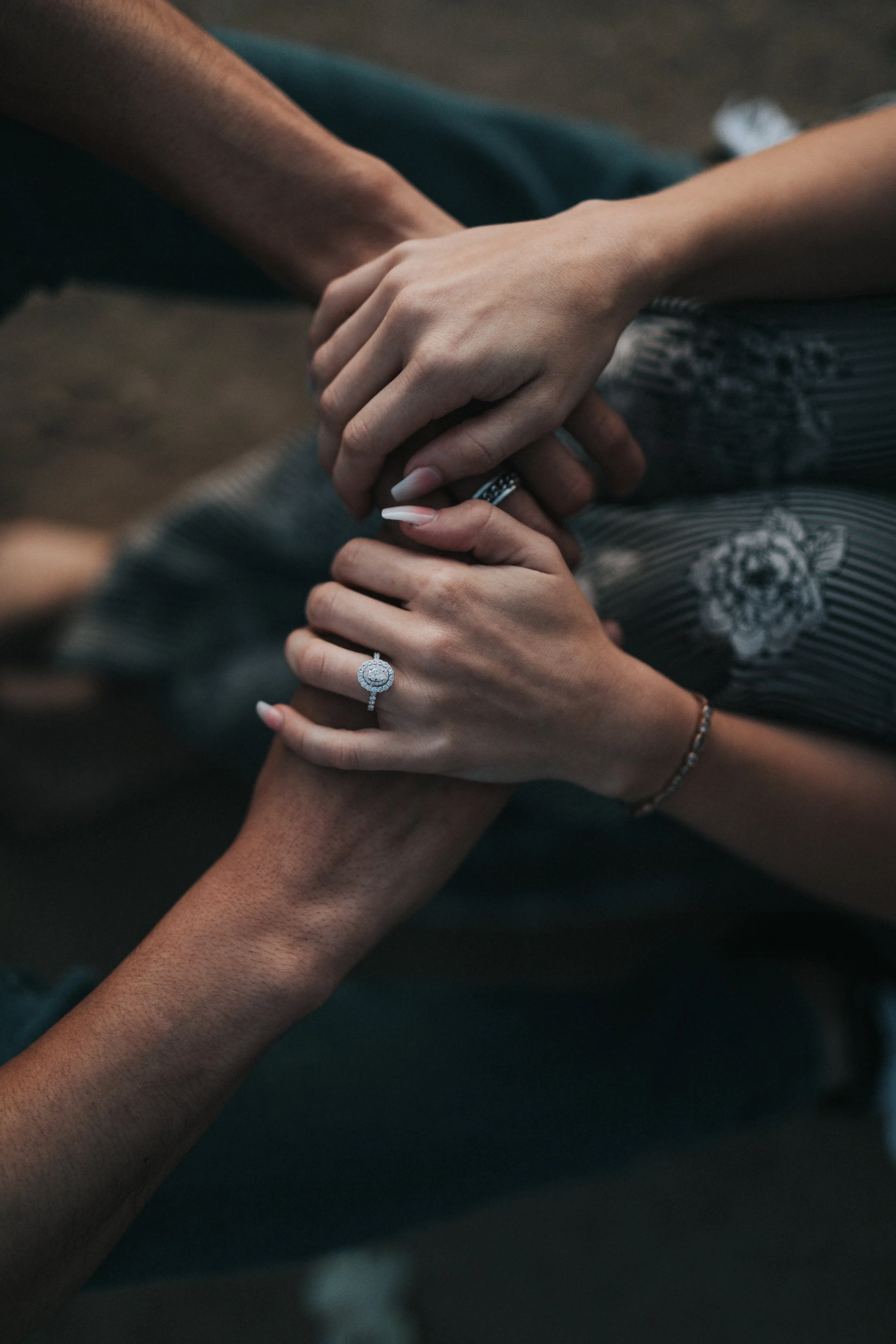How we dress or present ourselves is one way our inner world shows up on the outside (for better or worse!). Check out how personal styling with the Enneagram in mind can help you discover your authentic style and build confidence in how you show up in the world!
Not all Enneagram types have an easy time celebrating their birthdays! Here are some reasons why some of us might have a hard time, as well as some tips on how to take good care of you!
If you're feeling DREAD around seeing some people over the holidays learn some questions to ask yourself to help set boundaries.
Do you have a hard time asking for help? Hyper-independence actually creates more problems than it solves. Learn what counterdependence is, and how to grow beyond it.
Here are 3 tips for how to take good care of yourself. (Hint: It’s not too different from what you already do or feel towards plants!)
Is your Enneagram type compatible with your partner’s type? It’s really NOT that simple! Compatibility is about learning to struggle together and move BEYOND the patterns of each other’s types.
Empathetic people struggle to put their needs before others, but practicing assertiveness is a necessary part of every relationship. Read these quick tips on how to be assertive and create BALANCED relationships.
Use the Concentric Circles of Connection chart to plot how your current relationships are and make adjustments so that the closeness and distinction is just right.
Join me and fellow therapist, Ibinye Osibodu-Onyali, as we chat about toxic relationships, couples counseling, therapy for Christians, and the misconceptions of therapy.
Listen to a conversation with Melissa Moore on Faith Hope Love about the different types of toxic relationships and shared resources and tools for stronger, healthier connections.
I sat down with Melissa Moore and Faith Hope Love to chat about trauma, its symptoms, and how we can retrain ourselves to move on from trauma.
Enneagram Type Sixes (Type 6s) are always prepared for the unexpected, making them excellent troubleshooters and great for supporting teams. But, that default to worst-case scenarios can sometimes make them overly cautious people. Read what it’s like to be a Type Six from Jonathan Siu.
Enneagram Type Nines (Type 9s) are other-centered people who seek comfort and focus on pleasing others, aiming to ease conflict in their lives. This tendency can lead Nines to fall out of touch with their own emotions, especially with anger. Read about what it’s like being a Type Nine from therapist Lorren Penner.
Find out which question words (who, what, where, when, why, & how) make for great connections in conversations.
How do you know if you’re making progress in therapy? How do you know if your therapist is a good fit? These are the questions I tackle in this post’s FAQs.
We all want to date someone we’re compatible with, but what does “compatible” really mean? It’s actually NOT about finding someone who is a good fit, someone with whom everything is simple, easy, and fun. Learn more about true compatibility that really is the bedrock of vibrant relationships!
The Highly Sensitive Person (HSP) is someone who has the four distinctive traits DOES: (D) Depth of Processing, (O) Overstimulation, (E) Emotional Reactivity & Empathy, and (S) Sensitivity to Subtle Stimuli. HSPs help our society become more empathic, reflective, and interconnected. Learn more about life as an HSP and their specific needs.
Enneagram Type Sevens (Type 7s) are exceptional thinkers and brainstormers but can often get stuck inside their heads in ideas and dreams. Read about what it’s like being a Type Seven from Stefie Dominguez, a full-time grad student, musician, and therapist-in-training.
Enneagram Type Threes (Type 3s) often live life as a performance, seeking love and acceptance through success and achievements, often not realizing the connections they can make by just being themselves. Read about what it’s like being a Type Three from Morgan, a guest therapist who helps anxious women who are going through life transitions.
Juggling many tasks and responsibilities is HARD. Prioritize tasks before making irreparable mistakes by identifying which of these juggled “balls” are made of rubber, glass, or wood.
Do you feel like your needs don’t matter, despite how much you do for others? Learn how to move towards radical candor, a relationship stance that creates room in the relationship big enough for both yourself and others.
You may crave healthy relationships, but you might not know just what that looks like. Learn more about the traits of Safe vs. Unsafe People so that you can learn to distinguish who to draw closer to from who to stay away from and also to grow to become a safe person yourself.
Enneagram Type Fours (Type 4s) often live life within their own internal world, which often leads them to be misunderstood. Read about what it’s like being a Type Four from Joanne, a therapist who specializes in working with Type Fours and their loved ones.
A genogram is an important tool for self-awareness, personal growth, and relationship development. Create your map that shows where you’re from so that you can decide what kind of relationships you want to create going forward.
If your loved ones are feeling really overwhelmed with “big feelings” like anxiety, anger, or sadness, here’s one way to help them anchor themselves to the present and reduce stress using the five senses.
Emotions are an essential part of life and relationships. Try as you might, you won’t be able to get rid of them…and there’s no need to! Anxiety, guilt, shame, anger, and sadness reveal legitimate needs that all of us have. As we reintegrate emotions back into our lives, we are empowered to engage life to the fullest.
Conflict is a vital part of relationships. However, WHEN, WHERE, and HOW you fight matters just as much as WHY you fight. Learn more about finding the right place to engage each other so that you can fight (FOR yourself and your partner) WELL.
Conflict is an important and inevitable part of a couple's mission to create a vibrant life together. However, some forms of conflict are helpful and constructive and lead to a WIN-WIN, whereas others are hurtful and unproductive and lead to a LOSE-LOSE. Are you finding yourself in a gridlock with your partner? Read more about how to get onto the same page with your partner.
Everyone needs a safe haven (where we can take off our masks and rest easy) and a secure base (where we can launch towards our significant dreams). However, safe havens and secure bases are not things we can provide for ourselves; we NEED each other.



































Each of the human survival instincts - Self-preservation (SP), Social (SO), and Sexual (SX) - have their respective bias towards certain relationship habits. See which one resonates with you.